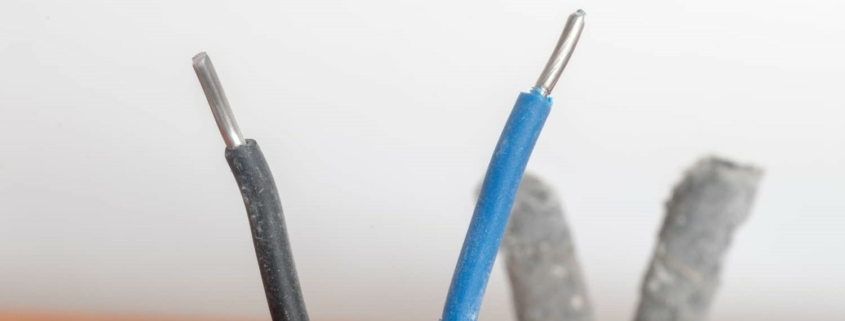The Hazards of Solid Aluminum Wiring to Electrical Systems
When it comes to residential and commercial electrical systems, the type of wiring used is a critical consideration. Among the various materials available, aluminum wiring has gained a notorious reputation over the years, particularly solid aluminum wiring. While it was once a popular choice due to its cost-effectiveness and conductivity, the hazards of solid aluminum wiring to electrical systems have become more apparent, leading to a significant decline in its usage.
In this blog, we will explore the hazards of solid aluminum wiring to electrical systems and why it is crucial to address these issues to ensure the safety of electrical systems.
A Brief History
Aluminum wiring was introduced in the 1960s as a cheaper alternative to copper wiring. During a time of rising copper prices, aluminum presented a cost-effective solution for electrical installations in homes and buildings. Initially, the use of aluminum wiring seemed promising due to its good conductivity and lower cost. However, over time, it became evident that aluminum wiring, especially solid aluminum wiring, posed serious safety risks that were not initially anticipated.
The Problem with Aluminum Wiring
One of the primary issues with aluminum wiring is its tendency to oxidize and corrode more readily than copper. When aluminum wiring oxidizes, it forms a non-conductive layer that can increase electrical resistance, leading to overheating. This overheating can, in turn, cause the insulation around the wire to degrade, increasing the risk of electrical fires. Additionally, aluminum has a higher coefficient of thermal expansion compared to copper, meaning it expands and contracts more with temperature changes. This can cause the connections to loosen over time, further exacerbating the risk of overheating and electrical failures.
Fire Hazards
The combination of increased oxidation, higher electrical resistance, and mechanical weakness makes solid aluminum wiring a significant fire hazard. Electrical arcing, caused by loose connections or broken strands, generates intense heat that can easily ignite surrounding materials. According to the U.S. Consumer Product Safety Commission (CPSC), homes with aluminum wiring are 55 times more likely to experience fire hazards than those with copper wiring.
Identifying and Mitigating the Risks
If you suspect that your home or building contains solid aluminum wiring, it is crucial to take immediate action to mitigate the hazards of solid aluminum wiring to electrical systems. Here are some steps to consider:
- Professional Inspection: Hire a licensed inspector to go through your electrical system. They can identify the presence of aluminum wiring and assess its condition.
- Connection Upgrades: If aluminum wiring is found, consider upgrading the connections. Special connectors, such as those rated for aluminum-to-copper connections, can help mitigate the risks by ensuring secure and stable connections.
- Rewiring: In cases where the aluminum wiring is extensive or in poor condition, rewiring with copper may be the safest option. While this can be costly, it significantly reduces the risk of electrical fires and other hazards.
- Regular Maintenance: Regular maintenance and inspections are essential to ensure the continued safety of your electrical system. Periodic checks can identify potential issues before they become serious problems.
Conclusion
The hazards of solid aluminum wiring to electrical systems cannot be overstated. While it was once seen as a cost-effective alternative to copper, the long-term risks associated with its use far outweigh the initial savings. The increased susceptibility to oxidation, higher electrical resistance, and mechanical weakness make solid aluminum wiring a significant fire hazard.
If your property has aluminum wiring, it is essential to take proactive measures to ensure the safety of your electrical system. You can mitigate these risks by conducting professional inspections, upgrading connections, or even rewiring with copper to protect your home or building from potential disasters. Prioritizing electrical safety is not just about compliance; it is about safeguarding lives and property from preventable hazards.




Leave a Reply
Want to join the discussion?Feel free to contribute!